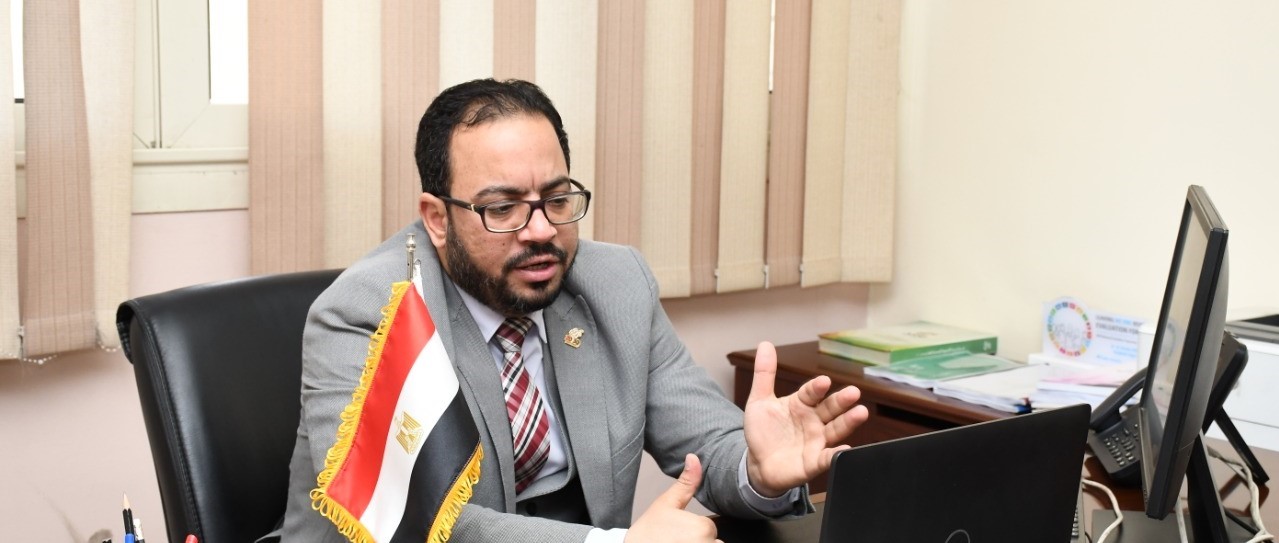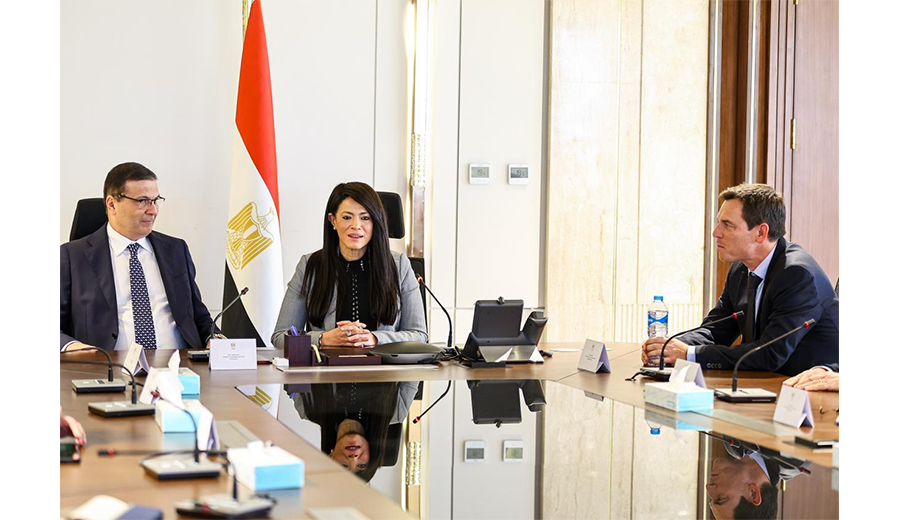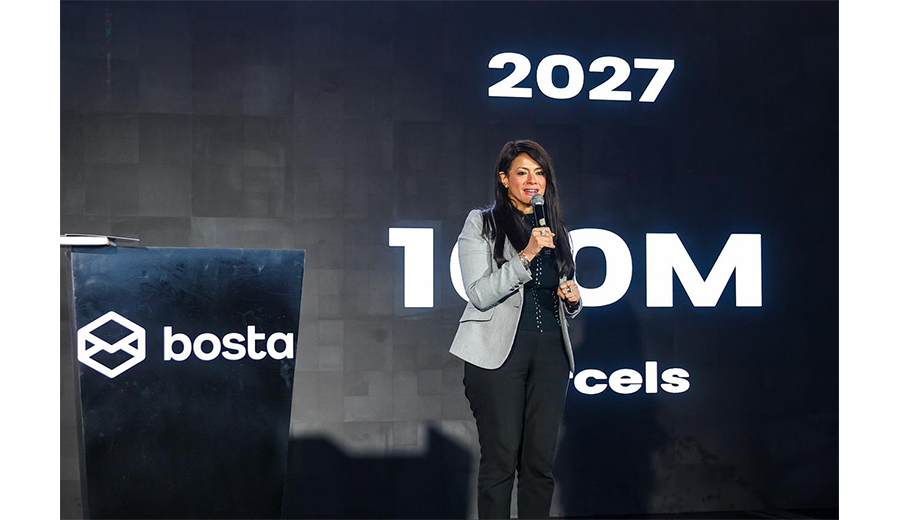Planning, environment ministers discuss the executive steps to implement the "Environmental Sustainability Standards Guide”

14 March 2021
The Ministry of Planning and Economic Development organized recently a workshop, via videoconference, to discuss the operational steps to start implementing the “Environmental Sustainability Standards Guide”, the Strategic Framework for Green Recovery" in cooperation with the Ministry of Environment, and with the participation of a large number of representatives of the ministries and stakeholders.Dr. Hala El-Said, Minister of Planning and Economic Development, stressed the importance of taking practical steps to implement the "Environmental Sustainability Standards Guide”, by spreading the culture of sustainability, and defining mechanisms for monitoring performance indicators for all sectors, to measure progress in the set goal through the implementation of priority projects and activities in the financing, and having a positive impact on the environment. In addition to following up the process of implementing the standards contained in the guide, to ensure that the achievements are monitored, as well as to identify the challenges facing the ministries and concerned authorities, to provide the necessary support for them.El-Said added that it is intended to increase public investments directed to green projects from 15% in the current year (20/2021) plan, to 30% in the fiscal year (21/2022) plan.Dr. Yasmine Fouad, Minister of Environment, said that the Environmental Sustainability Standards Guide is the fruit of environmental work efforts in Egypt, starting with environmental monitoring, data analysis, measuring environmental indicators, and all tools for protecting the environment.
Fouad explained that this guide is considered one of the most important and successful green transformation methodologies that Egypt has chosen to achieve sustainable development and is based on greening the state's budget plan.The Minister of Environment praised the partnership and cooperation with the Ministry of Planning and Economic Development for the issuance of this guide, which beliefs in the importance of natural capital in Egypt and the imperative of planning and providing financing for the transition to the green economy to protect and improve the Egyptian environment in fulfillment of the right of citizens and future generations to a decent life and the ecosystems based on sustainably providing their services.For his part, Dr. Jamil Helmy, Assistant Minister of Planning for Follow-up affairs of the Sustainable Development said that the launch of the "Environmental Sustainability Standards Guide” is of great importance at the local, regional and international levels, pointing out that Egypt is at the forefront of the region's countries in this field. Helmy pointed out that the countries of the whole world have paid attention to the importance of switching to environmentally friendly investments after the Corona pandemic, as the world has made sure that there is a strong relationship between concern for the environment and public health, and then the ability to recover from the repercussions of the Corona crisis.Helmy referred to the start of preparing a periodic report to follow up the implementation of the guide as soon as the sustainable development plan for the year 21/2022 was approved, noting that the environmental sustainability standards guide includes 14 sectors, not only for government agencies but also for the private sector.Helmy stressed that the guide does not concern the state's investment plan; rather, it includes the sustainable development plan in general, which requires the cooperation of all stakeholders.Helmy asserted the importance of integrating the environmental sustainability dimension in all project phases (planning, financing, design, implementation, and operation), pointing out that this merger is not related to financing projects that have positive effects on the environment only but rather focuses on all investment projects financed by the state where there must be a study to assess the environmental impact of any project.Helmy reviewed the efforts made by some ministries towards green recovery, including, for example, field irrigation and modern irrigation projects, rehabilitation and lining of canals, triple treatment of wastewater, smart transportation, electrified train and monorail, delivery of natural gas to bakeries, and others.In her turn, Eng. Samah Saleh, responsible for sustainable development at the Ministry of Environment and the national director of the "Capacity Building 3" project, referred to the training program that the Ministry of Environment is implementing through the project intending to build the capacities of government cadres in the field of environmental sustainability and the international environmental agreements that achieve this, including the three Rio conventions for diversity, biological, climate change, and desertification.This comes within the framework of fruitful cooperation between the Ministry of Environment and the Ministry of Planning and Economic Development intending to take into account environmental sustainability in the state's government budget projects, as the project trains several priority sectors on concepts, mechanisms, and environmental indicators and the goal of achieving international environmental agreements in addition to preparing specialized guidelines in the sectors.Saleh emphasized that there is a clear and specific vision with a clear timetable for the integration of environmental dimensions and green investments in the Egyptian state budget, noting that the past years have witnessed more pressures on the global economic system to shift towards a green economy, for example, the risks of climate change and the loss of biodiversity and severe climate events, among the five most global risks during the year 2020.









